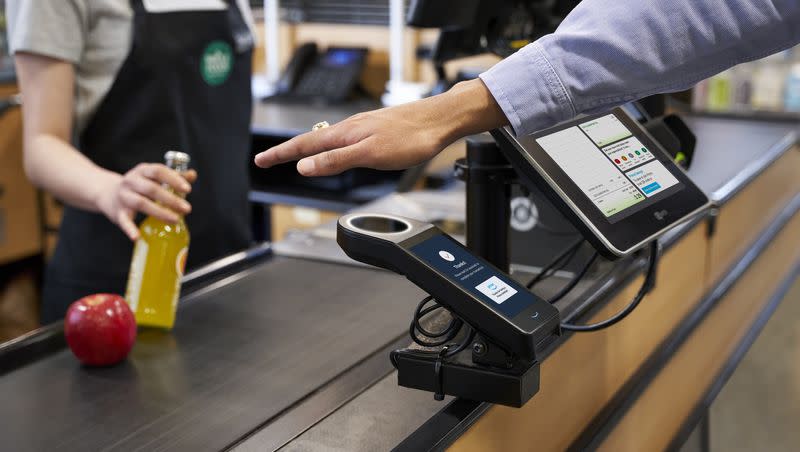More places selling alcohol are using facial, palm and iris recognition to verify age

Editor’s note: This story has been updated
With biometric systems, places selling alcohol have the ability to use programs like face recognition, palm identification and eye scans to tell if a customer is too young — a system many places have already implemented, Axios said.
USA Today said Coors Field in Colorado used Amazon One’s age verification feature by having customers ages 21 and up scan their palm to buy alcoholic beverages, which took away the need to check ID cards.
According to its website, biometric ID system CLEAR scans your iris and fingerprints and stores the information in a database that is accessible to use for identification in certain airports, arenas and stadiums throughout the nation.
After customers enroll in CLEAR, they are able to skip ahead of others in line who need verification via physical ID and scan their eyes or fingerprints to get to their airport gate, game or concert quicker, per Insider.
At the Las Vegas Raiders’ Allegiant Stadium, CLEAR customers are able to confirm on the CLEAR app that they’re older than 21, use facial and fingerprint recognition to verify their personal information and have alcohol delivered to their seat.
Sam Hall, chief product officer at CLEAR, told Axios, “No information is ever shared with a partner without your explicit consent.”
Axios reported that in New York and Washington state, legislative proposals have been announced that “would let bars, restaurants and other purveyors of adult products verify a customer’s age through biometric data — like a finger or palm image, or a retinal or face scan.”
State Sen. and New York bill sponsor James Skoufis told the New York Post, “This is the new frontier of age verification.”
There is still a long way to go if these systems are to continue gaining traction. Some have accused facial recognition systems of racial discrimination and other biometric data systems have falsely linked people to crimes they didn’t commit, Axios said.
Paying with a hand wave
Amazon announced last week its plan to install Amazon One, the company’s web service that uses palm recognition to identify payments, in all Whole Foods Market locations by the end of 2023.
“This means Whole Foods Market customers who choose to use Amazon One will no longer need their wallet or even a phone to pay — they can simply hover their palm over an Amazon One device,” the announcement said.
Payments are made by scanning your palm and using a person’s “underlying vein structure to create a unique numerical representation” that allows the payment to be processed online, USA Today said.
Once shoppers pre-enroll for Amazon One by entering their Amazon account, mobile number and card information online, they are able to use the scanners, Forbes said.
Amazon said savings will automatically be applied for Prime members that link their Amazon One profile with their Amazon account.
Related
Amazon One
According to Amazon, Amazon One is available at Amazon Fresh and Amazon Go stores and more than 200 Whole Foods Market stores across the U.S., including locations in states like California, New York, Texas and Utah.
Chief technology officer at Whole Foods Leandro Balbinot told USA Today, “We are always looking for new ways to delight our customers and improve the shopping experience. Since we’ve introduced Amazon One at Whole Foods Market stores over the past two years, we’ve seen that customers love the convenience it provides, and we’re excited to bring Amazon One to all of our customers across the U.S.”
CNN reported that in 2021, three U.S. senators questioned this new technology and how Amazon “could use consumer data for advertising and tracking and customer privacy more broadly.”
Related
Per CNN, the senators wrote that “Amazon’s expansion of biometric data collection through Amazon One raises serious questions about Amazon’s plans for this data and its respect for user privacy.”
Amazon said a customer’s palm data is not shared with third parties and is kept safe within Amazon’s Web Services cloud, CNN reported.
The announcement said select Panera Bread locations are using Amazon One by having guests scan their palm to pull up the customer’s MyPanera loyalty account information and receive a customized restaurant experience.
When Amazon One first launched in September 2020, Dilip Kumar, vice president of Amazon web services, said that “the product ‘has broad applicability beyond our retail stores,’ stating the company’s intentions to expand the feature at ‘retailers, stadiums and office buildings,’” according to Forbes.

